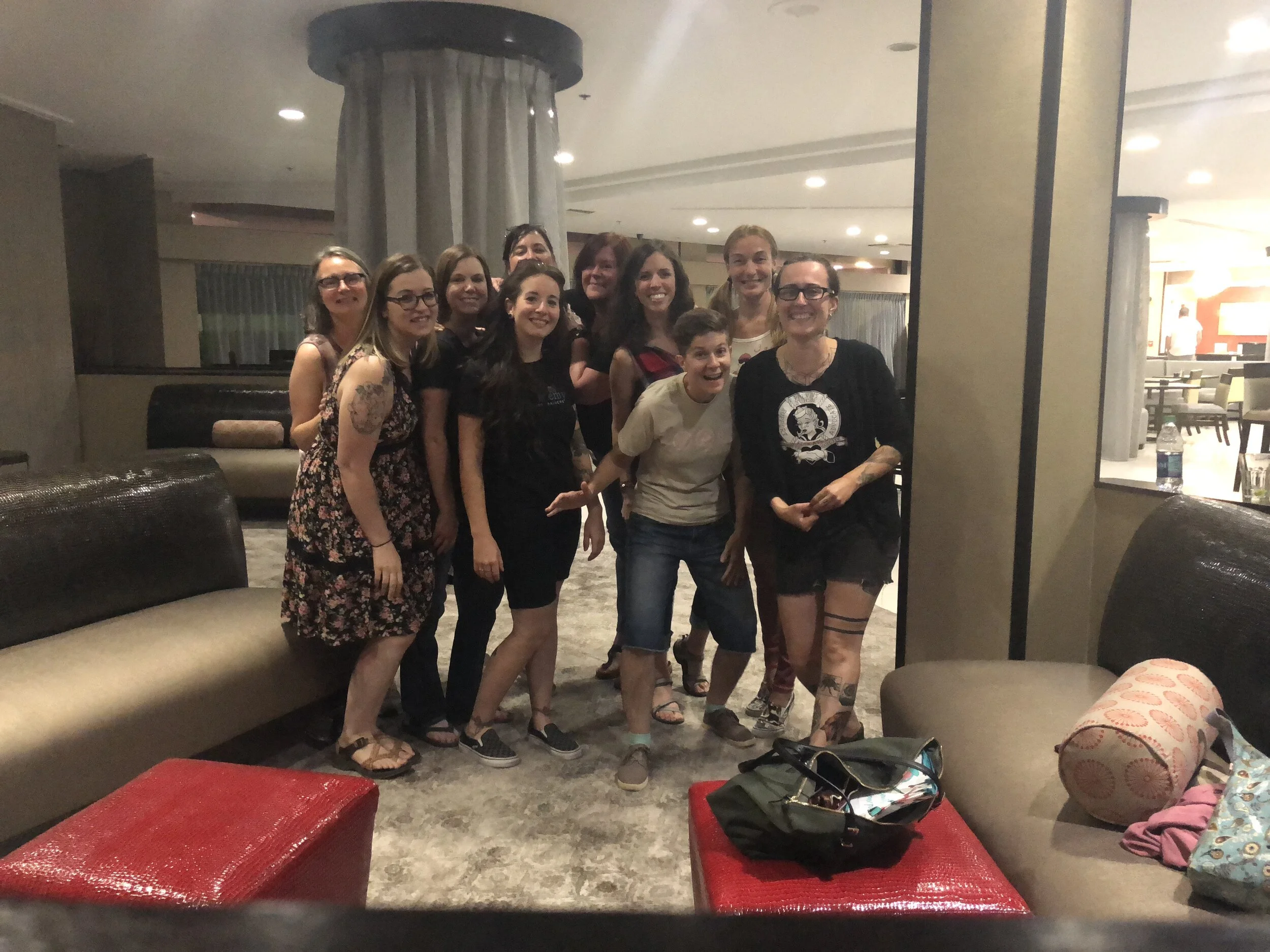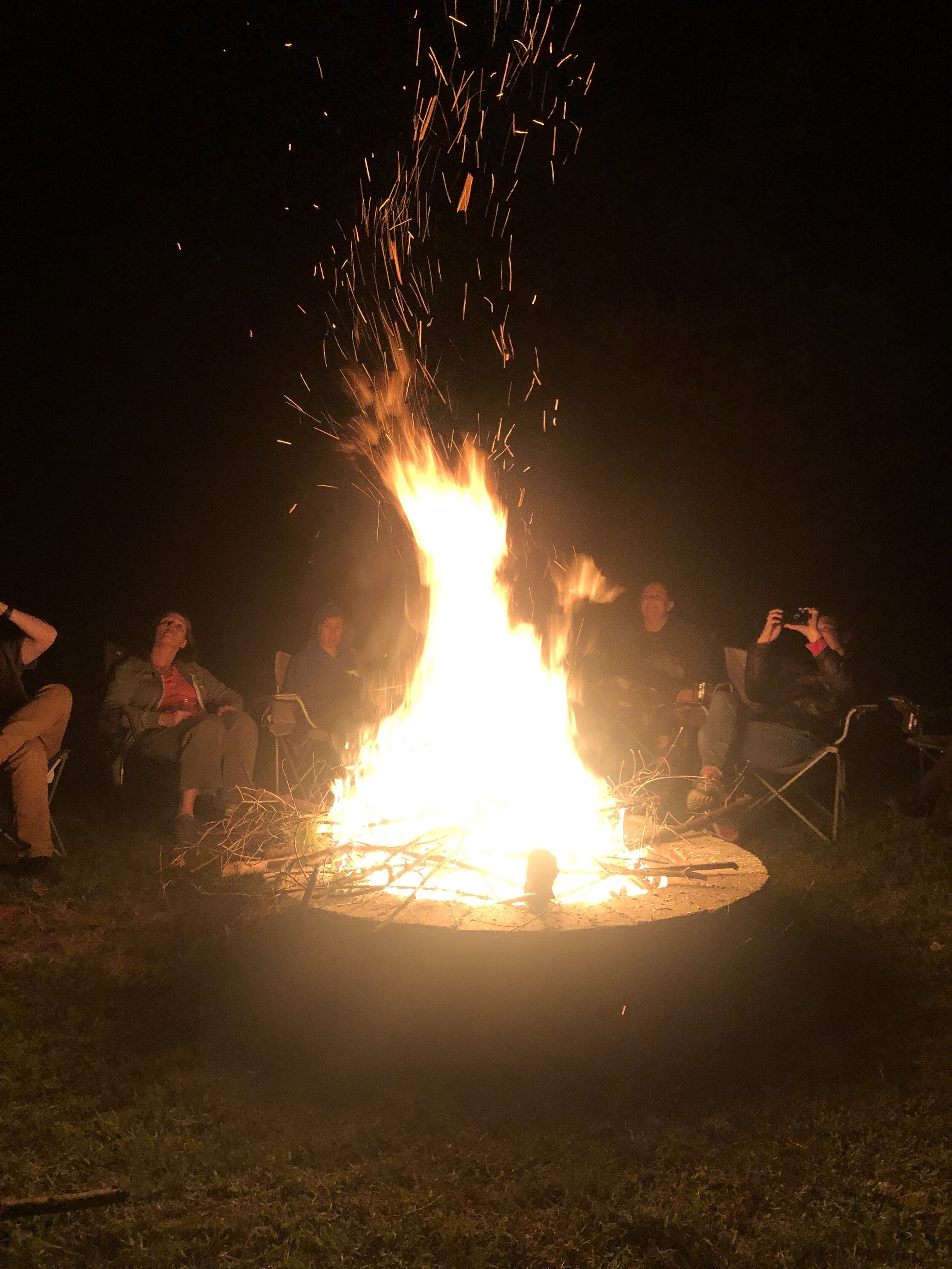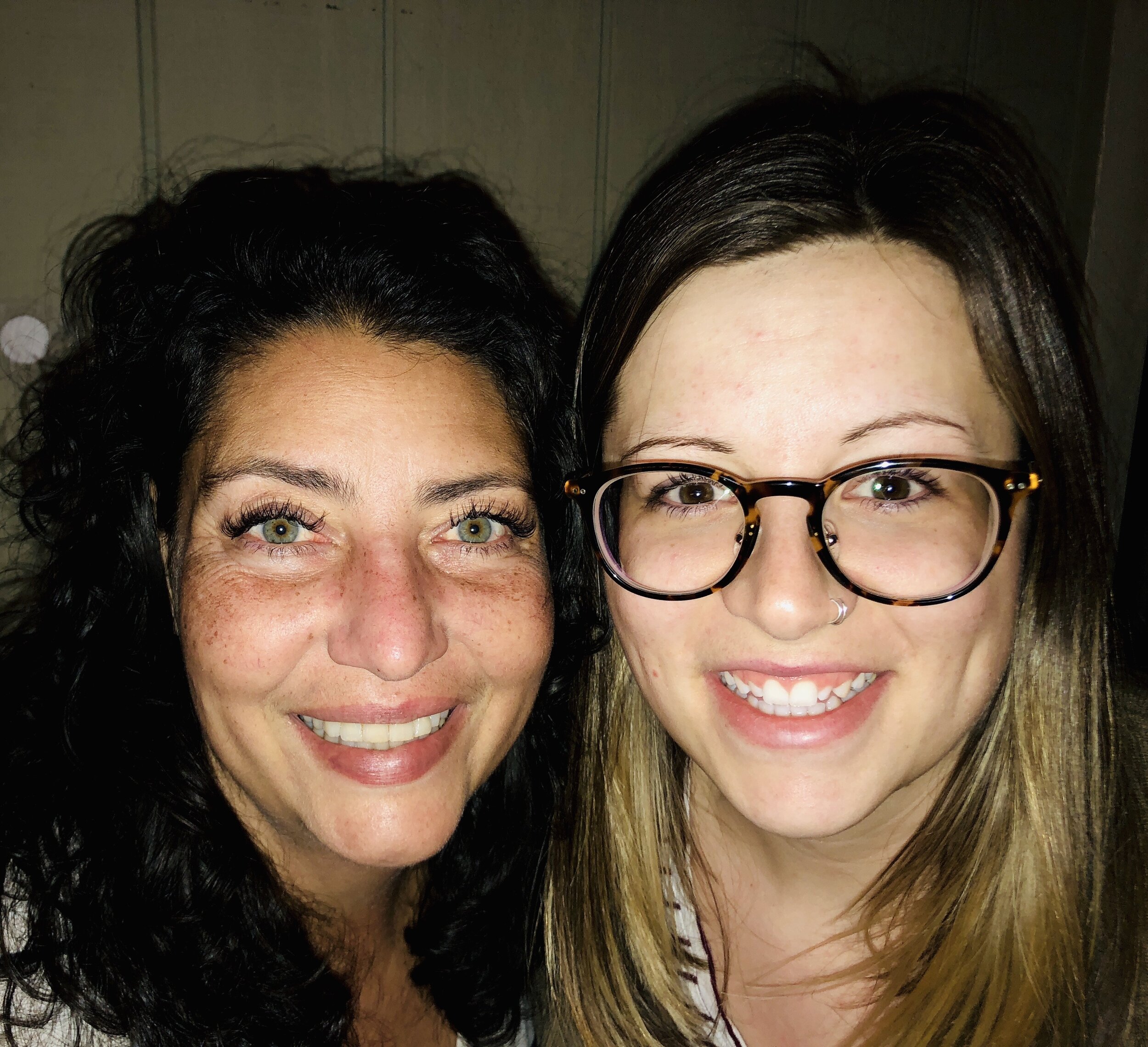My Academy Family
/On May 22, 2014, I received an email that changed my life. It was an acceptance letter from Jean Donaldson to study in The Academy for Dog Trainers. At the time, I didn’t realize how impactful that moment would be. I was 23 years old, working three jobs, volunteering full-time, performing in a band and in my prime socially. While I was certain that I wanted to pursue a career in dog training, school wasn’t at the top of my priority list. That changed rather quickly once I started my studies.
It is broadly known that The Academy for Dog Trainers is one of the highest quality programs for someone studying dog behavior. That’s not what I will be focusing on today. While I had a feeling I was going to be getting a top-notch education, I never expected to find myself in such a supportive environment with people who I now love dearly. As a freshman, I was intimidated by students and staff members. My own insecurities kept telling me that I wasn’t as good as others and that I’ll never be as good as them. I worried about failing and making a fool of myself but Jean and her staff were most supportive and uplifting. They were skilled at providing constructive feedback in a way that didn’t tear me down or belittle me. Not only did that give me the courage and confidence to keep going, it helped me to learn how to interact with clients of mine. I constantly reflect on the compassion and inclusiveness of The Academy for Dog Trainers. Over the years, I have had the pleasure of spending time and interacting with Jean Donaldson in different settings. Whether it was through my studies, out to dinner with other Academy students and grads, going to the dog beach, or reaching out to her for support when I was in unpleasant circumstances, I’ll always cherish the memories I have with her and will never forget the ways in which she has supported me both professionally and personally. She truly changed my life. Because of Jean, I am in a profession that I love and I’m able to help people and their dogs. I’ve also been able to apply what I learned to settings unrelated to dogs.
Even more impactful than my personal relationship with Jean is the community that she has created for students and grads. When I head over to one of the many private Facebook groups, I see posts from students who are reaching out for help, grads looking for collaboration on a case, staff highlighting how amazing a student’s assignment was or announcing a new graduate and people bringing attention to someone who deserves a gold star. I also see people working together to make everyone’s jobs a little bit easier, even if they’re feeling overwhelmed themselves. When the coronavirus hit and dog trainers had to move services online, Academy grads came together to create a list of videos to use for demonstrations as we found our own dogs were becoming too skilled at the behaviors we were attempting to teach. I saw people sharing posts on their own business pages to promote someone’s online class, even if it would impact their own class enrollment. These people are some of the most generous and kind people I’ve ever met. There’s rarely an argument because the students and grads are so good at carrying on productive conversations and are skilled at reinforcing and empathizing. I’ve never felt so grateful to be a part of something and I’ve never experienced a group of people with so much grace and compassion. While nothing can be perfect when it comes to large groups of people, it sure comes close to what I define as perfection.
While most of what I’m referring to is found in private groups not accessible by the general public, the compassion does not end there. When my dog passed away about 7 months ago, I received countless private messages, cards and gifts from people who wanted to show their support. It made the grieving process a little less painful, which I never thought was possible. I’ve posted fundraisers for things that are important to me, like dog training scholarships for foster dogs and farm animal sanctuaries, to which my colleagues have generously shared and donated to. But they’re not just supportive when it comes to dogs.
I’m a proud supporter of the Black Lives Matter movement and have been forever changed by the killing of George Floyd. While I’ve always supported the movement, this time feels different. I realized that my previous silence was unhelpful and causing more harm than good. I am aware that there are things I don’t know and will never understand because of my privilege. I could go on about my personal feelings on the topic but I’d like to highlight some amazing things I’ve seen. My colleagues and alma mater have been inspiring me from all over. The Academy for Dog Trainers recently posted a statement in support of the Black Lives Matter movement. They donated to the cause and are offering a scholarship to a person of color. Knowing the people who run the program, this was not a political move but a supportive gesture. An attempt to raise awareness and make changes to the current culture. The dog training industry is overwhelmingly white and I applaud their recognition and response. I’ve seen other colleagues who are donating proceeds to Black Lives Matter and calling for membership organizations to show their support. They’re putting their money where their mouths are and are standing up for what they believe in- all this in a time when they’re experiencing a decline in sales and income. The never-ending compassion and generosity will forever leave me speechless.
It is easy to get buried by all the things that weigh us down, and there’s a lot of heavy stuff in the world right now. It can be helpful to take a momentary pause to reflect on what lifts you up. The Academy for Dog Trainers is what lifts me up. I’m proud to be an Academy grad and I’m forever grateful for the impact the culture has had on me. I’m a better person because of it and I continue to be inspired by thoughtful, brilliant and compassionate people on a daily basis. My hope is that everyone can be fortunate enough to find a group of people who lift them up. I hope that the group challenges one another to be the best they can be and can set aside personal grudges and biases to be productive and kind. I hope that you can feel as supported and comfortable as I do with my Academy family.







































































